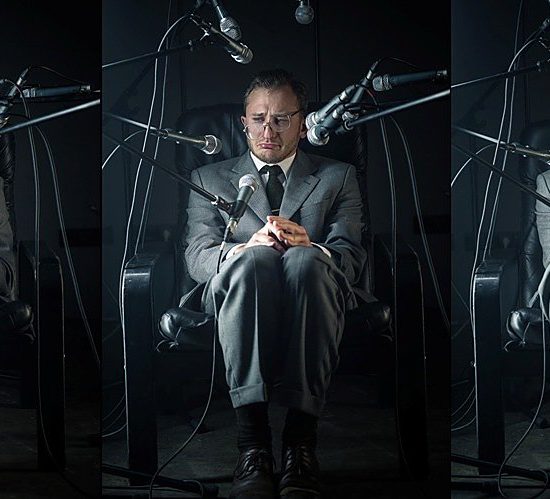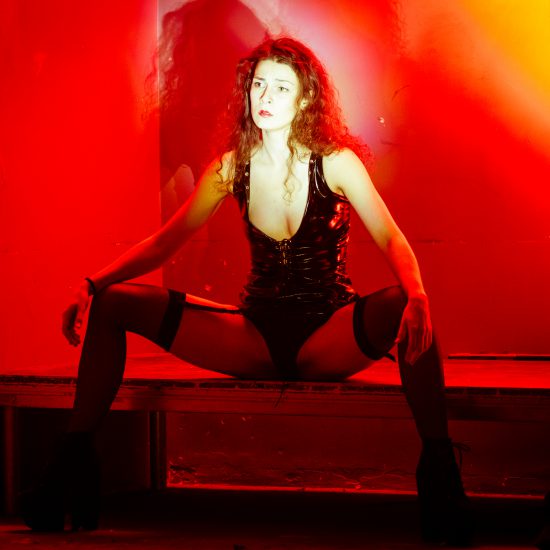The classics help to dissect the modern day
<…>
Arturas Areima has been playing with the classics more than one season. This director tends to produce independent and drastic interpretations. It is a fact worth knowing, as this time he chose to play with William Shakespeare’s “Julius Caesar.”
Don’t go to watch Shakespeare performed on stage. Instead, go to OKT to watch “Julius Caesar” staged by Areima and his colleagues – a performance which might very well become the hit of the season.
If in the director’s previous productions we felt his dictate for each move of each character, “Julius Caesar” looks like an improvisation of like-minded people.
Areima and his actors create their own texts, their own story, and their own meanings. What is borrowed from Shakespeare is the plot against the superior, his murder and its justification.
The performance is a kaleidoscope of today’s absurdity. Its rhythm gradually becomes more and more intense, and the humor thickens. The authors of “Julius Caesar” manage to find absurdity not only in the government, but also in the plotters’ personal relationships, the newspapers, television, and even in theater and fake blood used there.
No, they don’t go around splashing fake blood on the stage. Instead, they splash today’s topical issues with the speed which makes it hard to follow. Like in a cabaret. The connection of “Julius Caesar” with this day, even the very hour when the play is performed is principal.
<…>
Cascus, played by Daumantas Ciunis, is quiet, almost invisible, yet persevering and apt. Cassius (Tomas Rinkunas) tends to dominate, yet stays off the public eye. Brutus (Tadas Gryn) has mastered the skill of image interpretation. Their residence isn’t the Roman Senate. We can see it from the costumes.
The leader who feels that his time is almost over is nevertheless unwilling to give up power. That can be said about Julius Caesar played by Tomas Stirna. Another easily recognizable type: the master’s sentinel, faithful as long as there is a master. Yes, it’s Antonius (Tomas Kliukas).
All of them are at the same time the characters and the actors who play them, being within and without the roles. There is also a role/comment: Paulius Ignatavicius’ Octavius with a guitar.
The director has placed a large burden upon him: his role ranges from an amateur singer, rhyming political laments, to a foulmouthed hotshot who flips everybody off whenever he feels like it.
<…>



